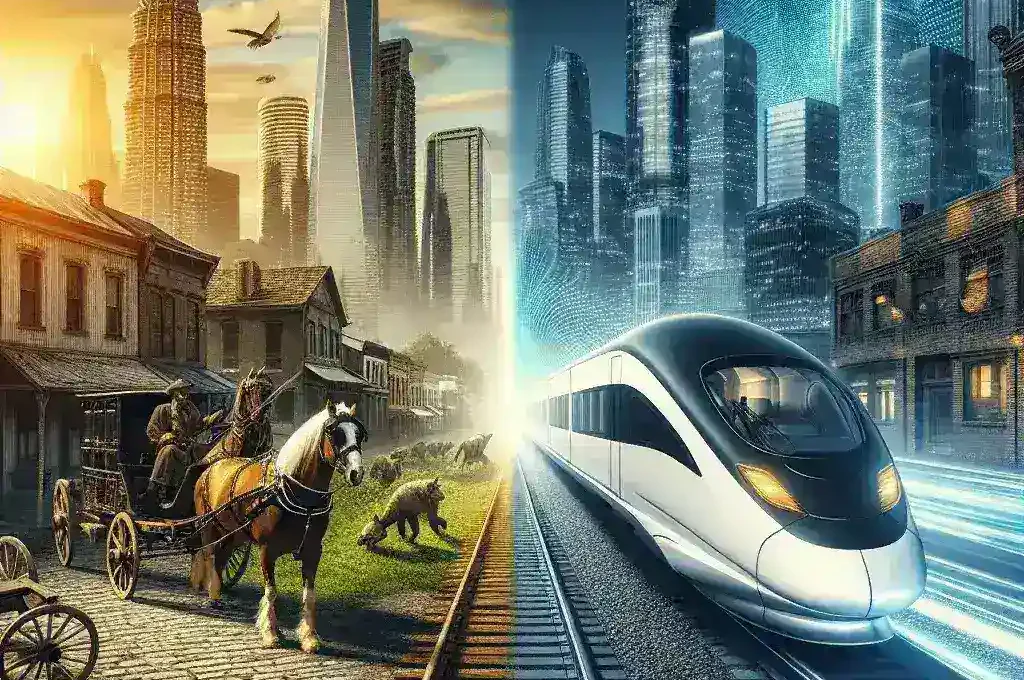The advent of technology has revolutionized various industries, with the transportation sector experiencing some of the most significant transformations. From autonomous vehicles to smart traffic management systems, technology is paving the way for a future where transportation is safer, more efficient, and environmentally friendly. This article delves into how technology is transforming transportation and what we can expect in the coming years.
Autonomous Vehicles
One of the most exciting advancements in transportation technology is the development of autonomous vehicles. Self-driving cars, trucks, and buses are being tested and, in some cases, already used on public roads. These vehicles utilize a combination of sensors, cameras, and artificial intelligence to navigate and drive without human intervention.
Safety and Efficiency
Autonomous vehicles promise to reduce accidents caused by human error, which accounts for a significant percentage of road accidents. With precise algorithms and real-time data processing, these vehicles can make more accurate decisions, potentially saving lives.
Environmental Impact
Autonomous vehicles can also optimize fuel efficiency by maintaining optimal speeds and reducing stop-and-go traffic, thereby lowering emissions. Furthermore, they can be programmed to prioritize routes that produce the least environmental impact.
Electric Vehicles
The shift towards electric vehicles (EVs) is another substantial change driven by technology. Traditional internal combustion engines are being replaced by electric motors, which are more efficient and less polluting.
Reduced Emissions
One of the most significant benefits of EVs is the reduction of greenhouse gas emissions. As electric vehicles do not rely on fossil fuels, they produce zero tailpipe emissions, making them an environmentally friendly alternative to traditional vehicles.
Advancements in Battery Technology
Ongoing research and development in battery technology are crucial for the widespread adoption of electric vehicles. Innovations in this area are leading to longer-lasting batteries and shorter charging times, making EVs more convenient and practical for everyday use.
Smart Traffic Management
Technology is also transforming how traffic is managed in urban areas. Smart traffic management systems use real-time data to optimize the flow of traffic, reducing congestion and improving overall efficiency.
Intelligent Traffic Lights
Intelligent traffic lights adjust their timings based on real-time traffic conditions, reducing wait times at intersections and smoothing the flow of vehicles. This can significantly decrease traffic jams and make commuting more efficient.
Advanced Navigation Systems
Advanced navigation systems provide drivers with the most efficient routes based on real-time traffic data. These systems can suggest alternative routes to avoid congestion, accidents, or road work, saving time and reducing fuel consumption.
Ride-Sharing and Mobility as a Service (MaaS)
The rise of ride-sharing platforms like Uber and Lyft has changed how people view transportation. These services use technology to connect passengers with drivers, offering a convenient alternative to traditional taxis.
Efficient Use of Resources
Ride-sharing reduces the number of vehicles on the road, leading to less congestion and lower emissions. It also allows for more efficient use of resources, as multiple passengers can share a single ride.
Mobility as a Service (MaaS)
MaaS platforms integrate various forms of transportation, such as public transit, ride-sharing, and bike-sharing, into a single service. Users can plan, book, and pay for their journeys through a single app, making transportation more accessible and convenient.
The Future of Air Travel
Technology is not only transforming ground transportation but also air travel. Innovations in aircraft design, automation, and alternative fuels promise to make flying safer, more efficient, and environmentally friendly.
Improved Aircraft Design
Advancements in materials and aerodynamics are leading to the development of lighter and more fuel-efficient aircraft. These improvements can reduce fuel consumption and lower the environmental impact of air travel.
Automation and Artificial Intelligence
Automation and AI are being integrated into various aspects of aviation, from pilot assistance systems to air traffic control. These technologies can enhance safety, improve efficiency, and reduce the workload on human operators.
Conclusion
Technology is undeniably transforming the transportation sector, making it safer, more efficient, and environmentally friendly. As advancements continue to emerge, we can expect even more significant changes in how we travel, both on the ground and in the air. The future of transportation looks promising, with technology leading the way to a more sustainable and efficient world.

